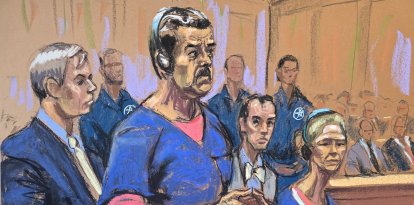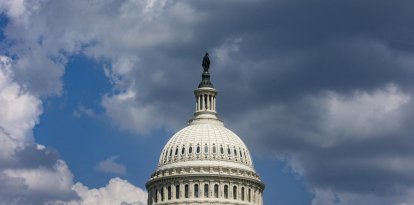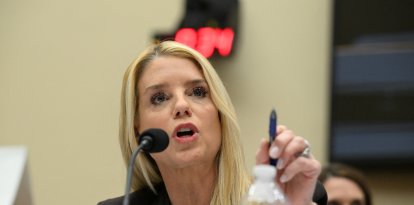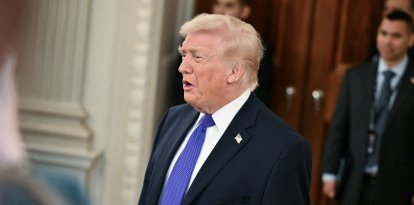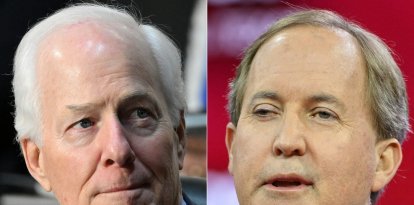The Supreme Court is divided on presidential immunity but Trump could benefit without getting it
The judges of the country's highest court heard oral arguments in the case and, although they did not entirely buy the argument of the former president's lawyer, they seemed open to some protection against criminal charges.

(Mandel Ngan / AFP)
The Supreme Court of the United States (SCOTUS) heard oral arguments on Donald Trump’s presidential immunity for the events of January 6. In two hours of oral arguments, the justices were open to the reasoning of the Republican’s lawyer, John Sauer, although without altogether buying his argument.
Sauer told the justices that former presidents cannot be prosecuted with criminal charges for their actions in the Oval Office unless the Senate convicts them. He even defended his argument in the context of political rivals having been murdered.
During oral arguments, the justices explored the limits of presidential immunity. They especially focused on which actions would qualify as “official,” for which this immunity would apply, but not for the “personal” ones.
On the other hand, Justice Department lawyers argued that Trump was not being accused of any conduct that could be considered presidential action. In turn, Jack Smith, who was present in court, has argued in the past that only sitting presidents enjoy immunity from criminal prosecution.
“What we seek to impose criminal liability on is a conspiracy to use fraud to subvert the election, one means of which was to try to make the Department of Justice complicit in this. The case would not have been different if the petitioner had been successful,” said Michael Dreeben, attorney for Smith’s team.
What did the judges say?
The most conservative judges, including Brett Kavanaugh, insisted that former presidents cannot be prosecuted for official acts, warning the DOJ that the opposite case would open the door for each new president to prosecute their predecessor. “This case has huge implications for the presidency, for the future of the presidency, for the future of the country,” said the judge.
As reported by The Hill, this position would have multiple benefits for the judicial future of the presumptive Republican nominee. “If the justices in part side with him, the case could be remanded back to the district court for further consideration, likely delaying his trial until after the election. If the former president wins reelection, his Justice Department would almost assuredly drop the charges,” the aforementioned media explained.
Others, such as Neil Gorsuch, suggested a more nuanced legal framework, with “official” actions that may be at risk of prosecution. He spoke of “core” official functions that could be fully protected while others could be subject to prosecution.
However, John Roberts and Amy Coney Barrett showed some distance from this position, taking Sauer’s argument to the limit. For example, the chief justice asked whether a president could be prosecuted for accepting a bribe to appoint someone to an ambassadorship. At the same time, Barrett wondered what would happen to the case after the court’s decision.
The more liberal justices, Elena Kagan, Sonia Sotomayor, and Ketanji Brown Jackson, went even further with the Roberts v. Sauer argument. For example, Kagan asked whether a president who sold nuclear secrets would have immunity.
Jackson even questioned the Republican’s arguments and said they could take the White House to a place where the law does not apply. “I’m trying to understand what the disincentive is from turning the Oval Office into, you know, the seat of criminal activity in this country,” the latest addition to the Court stated.













